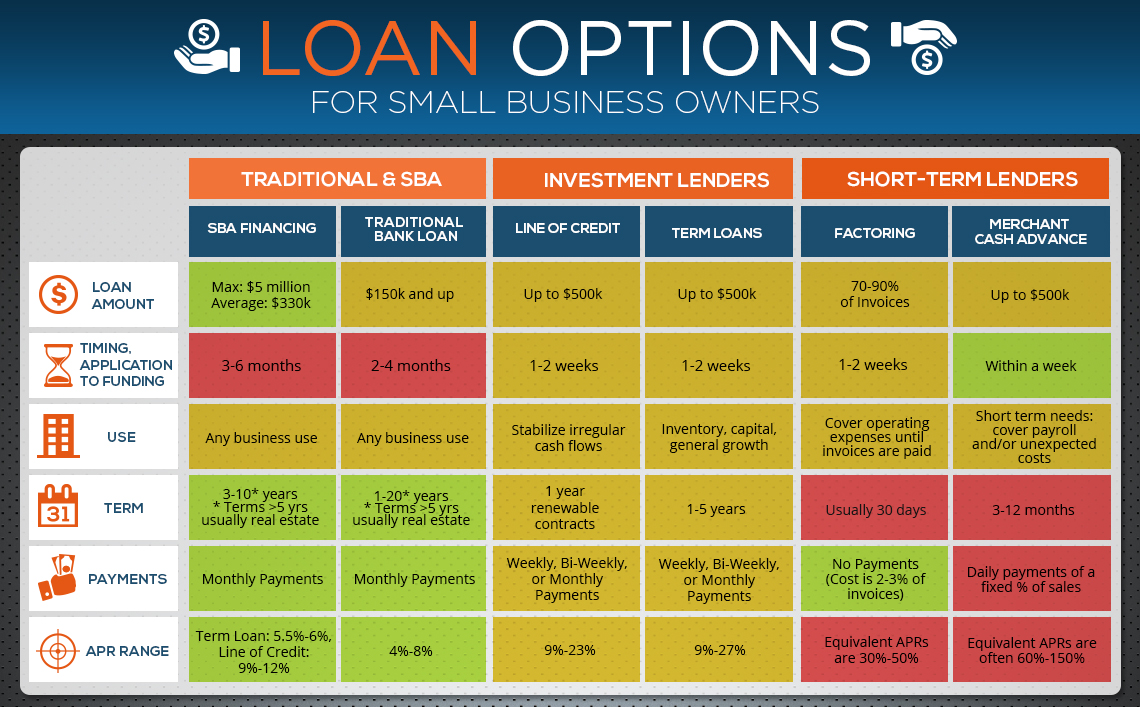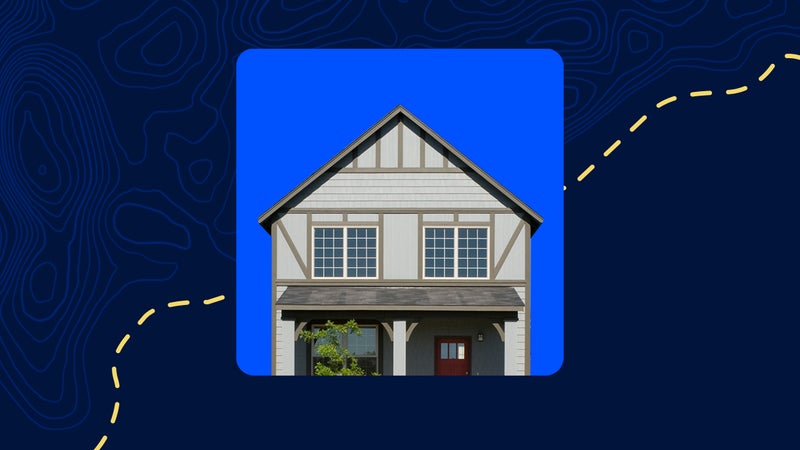
How We Make Money
The businesses whose offers you see on this website pay us. Unless our mortgage, home equity, and other home lending products are specifically prohibited by law, this compensation may have an impact on how and where products appear on this website, including, for example, the order in which they may appear within the listing categories. However, this payment has no bearing on the content we post or the user reviews you see here. We don’t include the range of businesses or loan options that you might have.

Our goal at Bankrate is to assist you in making more informed financial decisions. Although we follow stringent guidelines, this post might mention goods from our partners. Heres an explanation for . Bankrate logo.
Bankrate was established in 1976 and has a long history of assisting consumers in making wise financial decisions. We’ve upheld this reputation for more than 40 years by assisting people in making sense of the financial decision-making process and providing them with confidence regarding their next course of action.
You can rely on Bankrate to prioritize your interests because we adhere to a rigorous editorial policy. All of the content we publish is objective, accurate, and reliable because it is written by highly qualified professionals and edited by subject matter experts.
In order to give you peace of mind when making decisions as a buyer and homeowner, our mortgage reporters and editors concentrate on the topics that matter most to consumers: the newest rates, the greatest lenders, navigating the homebuying process, refinancing your mortgage, and more. Bankrate logo.
You can rely on Bankrate to prioritize your interests because we adhere to a rigorous editorial policy. Our team of distinguished editors and reporters produces truthful and precise content to assist you in making wise financial decisions.
We value your trust. Our goal is to give readers reliable, unbiased information, and we have established editorial standards to make sure that happens. Our reporters and editors carefully verify the accuracy of the editorial content they produce, making sure you’re reading true information. We keep our editorial staff and advertisers apart with a firewall. No direct payment from our advertisers is given to our editorial staff.
The editorial staff at Bankrate writes for YOU, the reader. Providing you with the best guidance possible to enable you to make wise personal finance decisions is our aim. We adhere to stringent policies to guarantee that advertisers have no influence over our editorial content. Advertisers don’t pay our editorial staff directly, and we carefully fact-check all of our content to guarantee accuracy. Thus, you can be sure that the information you’re reading, whether it’s an article or a review, is reliable and reputable. Bankrate logo.
How we make money
You have money questions. Bankrate has answers. For more than 40 years, our professionals have assisted you in managing your finances. We always work to give customers the professional guidance and resources they need to be successful on their financial journey.
Because Bankrate adheres to strict editorial standards, you can rely on our content to be truthful and accurate. Our team of distinguished editors and reporters produces truthful and precise content to assist you in making wise financial decisions. Our editorial team produces factual, unbiased content that is unaffected by our sponsors.
By outlining our revenue streams, we are open and honest about how we are able to provide you with high-quality material, affordable prices, and practical tools.
Bankrate. com is an independent, advertising-supported publisher and comparison service. We receive payment when you click on specific links that we post on our website or when sponsored goods and services are displayed on it. Therefore, this compensation may affect the placement, order, and style of products within listing categories, with the exception of our mortgage, home equity, and other home lending products, where legal prohibitions apply. The way and location of products on this website can also be affected by other variables, like our own unique website policies and whether or not they are available in your area or within your own credit score range. Although we make an effort to present a variety of offers, Bankrate does not contain details about all financial or credit products or services.
- Conventional loans, government-backed loans, jumbo loans, fixed-rate loans, and adjustable-rate loans are the five primary categories of mortgages.
- Renovation mortgages, construction loans, portfolio loans, and non-qualifying loans are some other mortgage types.
- The strength of your finances, credit score, and your plans to remain in the house all play a role in selecting the best mortgage.
To purchase a home, the majority of us require a mortgage, but there are differences in this kind of loan. Here is our guide to the five main types of mortgages to help you find the right one for your needs.
Types of home loans
- Conventional loan: Best for borrowers with good credit scores
- Jumbo loans are ideal for those with good credit who want to purchase a more expensive property.
- Government-backed loans: Ideal for applicants with poor credit and little money for a down payment
- Fixed-rate mortgage: Ideal for debtors who would rather have a steady, fixed monthly payment for the term of the loan
- An adjustable-rate mortgage is the best option for borrowers who don’t intend to live in the house for a long time, would rather make smaller payments now, and are okay with possibly having to make larger payments down the road.
52%The percentage of mortgages originated in 2022 that were conventional loans. The
Source: Urban Institute
There are two types of conventional loans, which are the most common kind of mortgage: conforming and non-conforming. Here’s what that means:
- Conforming loans: True to its name, a conforming loan “conforms” to a set of requirements established by the Federal Housing Finance Agency (FHFA), including limitations on loan size, debt, and credit. (The conforming loan limit for 2024 is $1,149,825 in higher-cost areas and $766,550 in most other areas.) Conventional loans that satisfy FHFA requirements can be acquired by Freddie Mac and Fannie Mae, the two government-sponsored enterprises (GSEs) that support a large portion of the mortgage market. Lenders receive loans from Fannie and Freddie, which gives them additional capital to make more mortgages for more borrowers.
- Loans classified as non-conforming: These loans don’t adhere to one or more FHFA requirements. Jumbo loans, which are mortgages in amounts greater than the conforming loan limit, are among the most prevalent kinds of non-conforming loans. Because non-conforming loans cannot be bought by the GSEs, lenders view them as a riskier investment.
Pros of conventional loans
- Available from the majority of lenders
- can be used to finance investment or rental properties, as well as primary, secondary, or vacation homes.
- Allowable deductions as little as 3% for a conforming, fixed-rate loan
Cons of conventional loans
- Need a credit score of at least 620 to qualify
- Lower minimum debt-to-income (DTI) ratio than for other mortgage kinds
- If making a down payment of less than 20%, you must pay the premiums for private mortgage insurance, or PMI.
Who are conventional loans best for?If you have a strong credit score and can afford to make a sizable down payment, a conventional mortgage is the best pick. The 30-year, fixed-rate option is the most popular choice for homebuyers.
Jumbo mortgages are home loans that are larger than conforming loan limits set by the FHFA. That refers to any loan exceeding $766,550 or $1,149,825 in higher-cost areas in 2024.
Pros of jumbo loans
- Can finance a more expensive home
- Competitive interest rates that are currently comparable to those on loans that comply
- Often the only option in areas with high home values
Cons of jumbo loans
- Not available with every lender
- Higher credit score requirement, often a minimum of 700
- Higher down payment requirement, often 10% to 20%
Who are jumbo loans best for?If you’re looking to finance a home with a purchase price exceeding the latest conforming loan limits, a jumbo loan is the best route.
The U. S. Although the government does not lend money for mortgages, it does help more Americans become homeowners by supporting three primary kinds of mortgages:
- Federal Housing Administration (FHA)-insured loans: FHA loans are available with a credit score as low as 580 and a 3. 10% down payment with a credit score as low as 500, or 5% down payment Although it is undoubtedly a benefit, FHA loans also come with additional costs because you have to pay mortgage insurance premiums. These fees assist the FHA in protecting lenders from delinquent borrowers. Furthermore, the maximum amount you can borrow with an FHA loan is significantly less than it is for a conventional conforming loan.
- VA loans: Guaranteed by the U. S. Department of Veterans Affairs (VA) loans are available to qualified U.S. S. surviving spouses and members of the armed forces (active duty, veterans, National Guard, and Reservists) There are no requirements for a minimum down payment, mortgage insurance, or credit score; however, there is a funding fee that can range from 1. 25 percent to 3. 3 percent at closing.
- USDA loans: Guaranteed by the U. S. Under specific income thresholds, Department of Agriculture (USDA) loans assist moderate-to low-income borrowers in purchasing homes in rural areas that qualify for USDA assistance. These loans have guarantee fees but no minimum credit score or down payment requirements.
Pros of government-backed loans
- Much more flexible credit and down payment guidelines
- Help borrowers who wouldn’t otherwise qualify
Cons of government-backed loans
- Fees for USDA guarantee, VA funding, and FHA mortgage insurance are extra.
- restricted to service members or borrowers purchasing a home in a rural area or within the FHA loan limits.
Who are government-backed loans best for?If your credit or down payment prevents you from qualifying for a conventional loan, an FHA loan can be an attractive alternative. Likewise, if you’re buying a home in a rural area or are eligible for a VA loan, these options might be easier to qualify for. Compare
With a fixed-rate mortgage, your monthly mortgage payment (principal and interest) will never change because the interest rate will remain constant throughout the term of the loan. Fixed loans normally have terms of 15 or 30 years, but some lenders allow for longer terms.
Pros of fixed-rate mortgages
- Interest rates higher than introductory rates on adjustable-rate loans
- Need to refinance to get a lower rate
Who are fixed-rate mortgages best for?If you’re planning to stay in your home for some time and looking for the stability of a monthly payment that doesn’t change (notwithstanding homeowners insurance premium and property tax increases), a fixed-rate mortgage is right for you.
ARMs, or adjustable-rate mortgages, have variable interest rates as opposed to fixed-rate loans. Generally, an ARM offers a reduced, fixed introductory rate for a predetermined amount of time. Following this time, for the duration of the loan term, the rate fluctuates at predetermined intervals, either upward or downward. For instance, the rate on a 5/6 ARM is fixed for the first five years, and then it varies every six months based on the state of the economy until the loan is paid off. Your monthly mortgage payment increases in tandem with an increase in your rate.
- Lower introductory rates
- Could pay less over time if prevailing interest rates fall
- Ongoing risk of higher monthly payments
- Tougher to plan your budget as rate changes
Who are adjustable-rate mortgages best for?If you don’t plan to stay in your home beyond a few years, an ARM could help you save on interest payments. However, it’s important to be comfortable with a certain level of risk that your payments might increase if you’re still in the home.
When looking for a loan, you might come across additional mortgage types in addition to these typical ones:
- A construction loan, particularly a construction-to-permanent loan that becomes a regular mortgage once you move into the house, can be an excellent financing option if you want to build a house. The ideal candidates for these short-term loans are those who can offer a larger down payment and evidence of their ability to make monthly payments. Learn More .
- In an interest-only mortgage, the borrower makes principal and interest payments after making interest-only payments for a predetermined amount of time, typically five or seven years. With this loan, you won’t accumulate equity as quickly because you’ll only be making interest payments at first. The ideal borrowers for these loans are those who can sell, refinance, or who can realistically anticipate being able to pay the higher monthly payment in the future. Learn More .
- A piggyback loan, sometimes called an 80/10/10 loan, consists of two loans: one for 90% of the purchase price of the property and another for 10%. You’ll make a down payment for the remaining 10 percent. Although these loan options save the borrower from having to pay mortgage insurance, they do come with two sets of closing costs. Additionally, there will be interest charged on two loans, so this non-traditional arrangement is best suited for people who will truly save money by using it. Learn More .
- When a balloon mortgage is repaid, a sizable payment is due. Usually, for a brief period of time—such as seven years—you will make payments based on a 30-year term. You’ll have to make a sizable payment on the remaining amount when the loan term expires, which could become overwhelming if you’re not ready. The best borrowers for these loans are those who can afford to make a sizable balloon payment at the end of the loan term. Learn More .
- Some lenders decide to retain their loans in their portfolio, or “on the books,” while the majority sell them to investors (more on that here). “The lender does not have to follow FHFA or other standards because they retain these loans.” As such, they might have more flexible requirements. Learn More .
- Renovating a home requires a lot of work, so you could use a renovation loan, like an FHA 203(k) loan. These loans integrate the expenses of buying and remodeling into a single mortgage. Learn More .
- Even with a well-paying job, getting approved for a traditional mortgage can be challenging for doctors because they frequently have significant student loan debt. Enter physician loans, which facilitate home ownership for medical professionals such as doctors and nurses. Learn More .
- Known as “non-QM loans” informally, these mortgages don’t meet certain requirements established by the Consumer Financial Protection Bureau. Their lenders have more flexibility in setting terms and underwriting. Non-QM loans are beneficial for less conventional borrowers because they have more flexible credit and income requirements; however, they frequently have higher interest rates and down payments, as well as potentially riskier terms. Learn More .
How to choose the right type of mortgage loan for you
The best mortgage for you will depend on your credit, finances, and goals in addition to whether you satisfy any additional qualifying requirements. For example, if you or your spouse have never served in the armed forces, you are not eligible for a VA loan. An ARM may enable you to save money on interest if you intend to purchase a house and then sell it after three years. To find out where you stand when comparing loan kinds, figure out your DTI ratio and check your credit score.


FAQ
What kind of loan is a mortgage?
Conventional loans, government-backed loans, jumbo loans, fixed-rate loans, and adjustable-rate loans are the five primary categories of mortgages. Renovation mortgages, construction loans, portfolio loans, and non-qualifying loans are some other mortgage types.
What are the three main types of mortgages?
There are three primary mortgage options available when buying a home: fixed-rate, conventional, and standard adjustable rate. Each has unique advantages and drawbacks that cater to different types of homebuyers.
Is a mortgage a type of personal loan?
A personal loan can be used for a number of purposes, whereas a mortgage can only be used to buy real estate. A home equity loan or a home equity line of credit (HELOC) are two examples of installment loans that are secured by real estate but can be used for purposes other than real estate.
What is the most common type of mortgage?
Conventional Mortgages: The most prevalent kind of mortgages are conventional mortgages. Nevertheless, compared to other loan options, conventional loans might have different requirements for a borrower’s minimum credit score and debt-to-income (DTI) ratio.
Read More :
https://www.bankrate.com/mortgages/types-of-mortgages/
https://www.lendingtree.com/home/mortgage/types-of-mortgage-loans/
